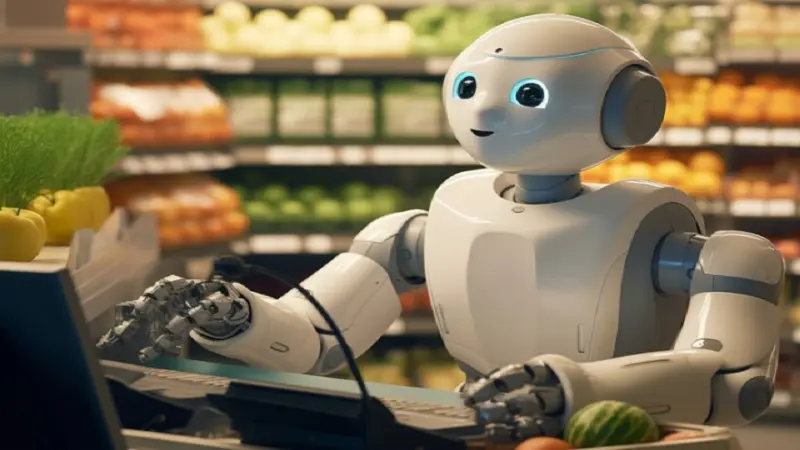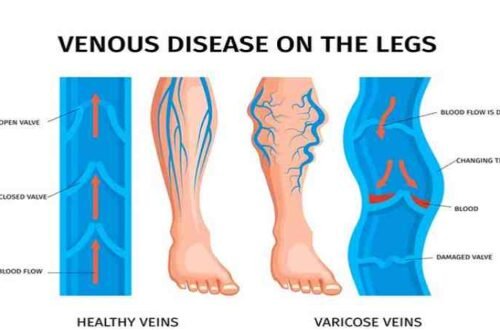In the age of automation, warehouse robotics has emerged as a critical battleground for innovation. Companies are vying for technological supremacy, each striving to outdo the other in creating more efficient, faster, and smarter systems. Two such giants, Ocado and AutoStore, have found themselves locked in a legal dispute that could have significant implications for the future of automated retail logistics. This article delves into the intricate details of the Ocado-AutoStore legal battle, examining its origins, the key players involved, and the broader impact it could have on the warehouse robotics industry. Ocado Autostore Court Autostore Wessling The Robot Report
The Rise of Warehouse Robotics
Before diving into the specifics of the legal case, it’s essential to understand the context in which this battle is unfolding. Over the past decade, the demand for automation in warehouses has skyrocketed. E-commerce has grown at an unprecedented rate, with companies like Amazon leading the charge. To meet the demands of this growth, businesses have increasingly turned to robotics to streamline operations, reduce costs, and improve efficiency.
Warehouse robotics involves the use of automated systems to manage inventory, fulfill orders, and handle other logistical tasks. These systems can range from simple conveyor belts to sophisticated robots that navigate warehouses, picking and packing items with precision. Among the most advanced of these systems are those developed by Ocado and AutoStore.
Ocado: The Innovator in Grocery Delivery
Ocado, a British online supermarket, has been at the forefront of grocery delivery innovation since its founding in 2000. Unlike traditional supermarkets, Ocado operates without physical stores, relying entirely on a network of highly automated warehouses, known as Customer Fulfillment Centers (CFCs), to fulfill orders.
What sets Ocado apart is its proprietary technology, which includes a sophisticated system of robots that navigate a grid-like structure, picking items from bins to assemble customer orders. This technology, known as the Ocado Smart Platform (OSP), has attracted significant attention and investment. Ocado has also partnered with major retailers worldwide, licensing its technology to companies like Kroger in the United States and Coles in Australia. Ocado Autostore Court Autostore Wessling The Robot Report
AutoStore: The Challenger with a Compact Solution
AutoStore, a Norwegian robotics company, offers a different approach to warehouse automation. Founded in 1996, AutoStore developed a compact, cube-based storage system that maximizes warehouse space. In an AutoStore system, bins are stacked vertically in a grid, with robots traveling on top of the grid to retrieve and deliver bins to picking stations.
This space-saving design has made AutoStore popular among companies looking to optimize storage in small or crowded warehouses. Like Ocado, AutoStore has also seen widespread adoption of its technology, with clients ranging from electronics retailers to pharmaceutical companies.
The Origins of the Legal Dispute
The legal conflict between Ocado and AutoStore began in October 2020, when AutoStore filed a lawsuit against Ocado in the United States and the United Kingdom. AutoStore alleged that Ocado’s OSP system infringed on several of its patents related to robotics and warehouse automation. The crux of AutoStore’s argument was that Ocado’s robots and storage methods were strikingly similar to its patented technology.
AutoStore sought to block Ocado from selling its OSP technology and sought compensation for damages. The lawsuit quickly escalated, with both companies accusing each other of intellectual property theft. Ocado, in turn, filed a countersuit, claiming that AutoStore’s patents were invalid and that AutoStore was infringing on its technology. Ocado Autostore Court Autostore Wessling The Robot Report
The Court Battles: Key Developments
As the lawsuits unfolded, both companies became embroiled in a series of legal battles across multiple jurisdictions, including the United States, the United Kingdom, and Germany. Each side presented its case, with AutoStore arguing that Ocado had copied key elements of its technology, while Ocado maintained that its innovations were original and did not infringe on AutoStore’s patents.
One of the most significant developments occurred in December 2021, when the U.S. International Trade Commission (ITC) issued a ruling in favor of Ocado. The ITC found that Ocado’s OSP system did not infringe on AutoStore’s patents, dealing a significant blow to AutoStore’s case. However, the legal battles were far from over.
In parallel, the German courts provided a different perspective on the matter. In March 2022, a Munich court ruled in favor of AutoStore, finding that Ocado’s system did indeed infringe on AutoStore’s patents. This ruling granted AutoStore an injunction against Ocado, preventing the company from selling its technology in Germany. The contrasting rulings in different jurisdictions highlighted the complexity of the case and the challenges of resolving patent disputes in the global marketplace. Ocado Autostore Court Autostore Wessling The Robot Report
The Role of Hannes Wessling: auto store’s Legal Strategist
A key figure in AutoStore’s legal campaign has been Hannes Wessling, a German lawyer specializing in intellectual property law. Wessling has been instrumental in guiding AutoStore’s legal strategy, particularly in the European courts. His expertise in navigating the intricacies of patent law has been critical in securing favorable rulings for AutoStore, especially in Germany.
Wessling’s approach has been characterized by a meticulous analysis of Ocado’s technology and a relentless pursuit of legal remedies. Under his guidance, AutoStore has not only sought to defend its patents but also to position itself as a leader in the warehouse robotics industry. Wessling’s efforts have been a driving force behind AutoStore’s legal victories, though the overall outcome of the global legal battles remains uncertain.
The Broader Implications for the Industry
The Ocado-AutoStore legal dispute is more than just a battle between two companies; it represents a broader struggle over the future of warehouse automation. The outcome of these legal battles could have far-reaching implications for the industry, affecting how companies develop and protect their technologies.
- Patent Wars in Robotics: The case underscores the importance of intellectual property in the robotics industry. As companies invest heavily in research and development, securing patents becomes crucial to protecting their innovations. However, the case also highlights the challenges of enforcing patents, especially in a rapidly evolving field where new technologies can quickly render existing patents obsolete.
- Innovation vs. Imitation: The dispute raises questions about the fine line between innovation and imitation. While companies must innovate to stay competitive, they must also be mindful of existing patents and the potential for legal challenges. The Ocado-AutoStore case serves as a reminder that even small similarities in technology can lead to costly legal battles.
- Impact on Partnerships and Licensing: The outcome of the case could influence how companies approach partnerships and licensing agreements. If AutoStore succeeds in its claims, it could deter other companies from partnering with Ocado for fear of legal repercussions. Conversely, a victory for Ocado could encourage more companies to license its technology, confident that it does not infringe on existing patents.
- The Future of Warehouse Automation: Ultimately, the legal battle between Ocado and AutoStore could shape the future of warehouse automation. If the courts favor one company over the other, it could establish a precedent for how similar cases are handled in the future. This could influence the direction of technological development in the industry, with companies either pursuing more aggressive patent strategies or seeking alternative methods of innovation. Ocado Autostore Court Autostore Wessling The Robot Report
Conclusion: A Battle with No Clear Winner
As of now, the legal battle between Ocado and AutoStore remains unresolved, with both companies continuing to pursue their claims in various courts. The outcome of these disputes is uncertain, and it may take years before a final resolution is reached. What is clear, however, is that this legal battle has already had a significant impact on the warehouse robotics industry, drawing attention to the importance of intellectual property and the challenges of navigating a competitive and rapidly changing market.
For now, the world of warehouse automation watches closely as these two giants continue their fight, knowing that the result could alter the landscape of the industry for years to come. Whether Ocado or AutoStore emerges victorious, the lessons learned from this case will undoubtedly shape the strategies of other companies in the field, influencing how they innovate, protect their technologies, and compete in the global marketplace. Ocado Autostore Court Autostore Wessling The Robot Report




